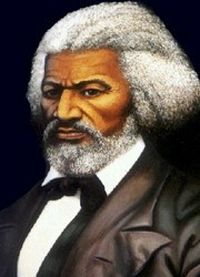Why Would Congress Punish Colleges That Decline Federal Funds? A Hillsdale Mom Makes the Case for That ‘Hillsdale Exemption’
The tax bill headed to conference is a good bill—and a great advance for the nation if Congress gets it done and on the president’s desk by year-end. It may be too late to change anything, or foolish to try, but one of its glaring flaws is a blanket proposal to levy a 1.4% excise tax on certain university endowments. I do not have a developed policy view on taxing billion-dollar endowments at Harvard (other than glee at the idea); it feels like Congress is just hunting for cash. But I do have a strong policy view on the failure of either the House or the Senate to recognize, in their haste to get this done, that the new tax would punish colleges that do not feed off taxpayers.
Hillsdale College, where my son is a senior, is one of handful of schools that do not take any federal money—and that includes student grants and loans. Every tuition dollar is paid by parents or benefactors. Hillsdale declines all funds because it frees the college to ignore the dictates coming out of Washington—and save a lot of money not filling out all the paperwork. The college is joyful place (except during finals).
Dr. Larry Arnn, the President of Hillsdale College, wrote what I thought was a too polite plea for Congress to amend the tax bill (The Wall Street Journal, About That ‘Hillsdale Exemption’, December 11, 2017). Dr. Arnn reports, “The proposed tax in one of its forms would cost Hillsdale the equivalent of about 20 full-tuition scholarships every year.” Given that the highly selective college has less than 1500 students, these twenty per class would be sorely missed.
As of this morning, the tax bill does not include an amendment offered by Sen. Pat Toomey that recognized what I know as a Hillsdale Mom: the reason Hillsdale has a large endowment, and thus qualifies for the tax, is because it does not take federal funds. People like me, and thousands of people around the country, happily give to the college because we believe in both the business model and mission of the college. Hillsdale, and the handful like it, should be encouraged, not punished.
Here is Dr. Arnn:
As a matter of principle the government should reduce its subsidies to universities rather than taxing endowments. But the bill being what it is, the exemption suggested by Mr. Toomey seemed fair to me. Taxpayers heavily subsidize the higher education of students at almost every school in the country. Hillsdale is one of fewer than 10 colleges providing students with educations paid for exclusively by private money.
One of the reasons Hillsdale inspires people to endow the college who never attended, or had children attend the college, or even step foot on it, is that its origins were radical and the college remains true to its charter by staying clear of federal education policy. Here is Dr. Arnn:
Hillsdale was founded in 1844. Our oldest building was dedicated on July 4, 1853. Two of my predecessors as president helped write the Republican Party’s first platform. Frederick Douglass spoke on our campus in 1863 and again in 1888. Consistent with the values of the party of Lincoln and Douglass, Hillsdale’s founding charter declares the college will take “all who wish, without regard to race, sex, or national origin.” Admissions decisions are still governed by that principle.

Hillsdale is similarly committed to helping those in need. Last year we supplemented our need-based aid program, which assists almost half the student body, with the Frederick Douglass Scholarships, targeted to students from severe poverty. The first three students have been admitted to Hillsdale under that program. The college also spent a million dollars over the past three years to sponsor 17 classical K-12 charter schools, some of which serve needy families in tough neighborhoods.
I checked with experts on the Hill this morning: the tax bill could be amended in conference to add new provisions like the ‘Hillsdale Exemption’ (it’s called “air dropping”). But since the Senate is using the reconciliation process to pass the bill, it could get hung up under the Bird Rule as “too prescriptive” and force another vote on the bill. That may be too great a risk to take.
Corrections can be made later, so let’s remember this one in the New Year. The ‘Hillsdale Exemption’ would make good tax and education policy. Twenty Hillsdale-bound scholarship students are counting on Congress to take that vote.